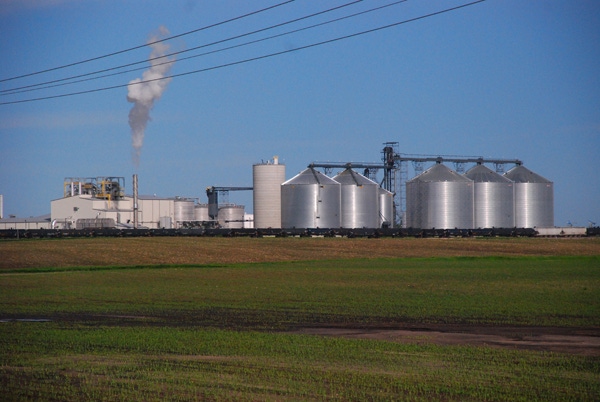EPA grants 31 RFS small refinery exemptions
Latest round of exemptions would eliminate 1.43 billion gal. of U.S. biofuel demand.

On Friday afternoon, the Environmental Protection Agency announced a new round of small refinery exemptions under the Renewable Fuel Standard (RFS) that could equal another 1.43 billion gal. of U.S. biofuel demand.
Under EPA’s RFS program, a small refinery may be granted a temporary exemption from its annual renewable volume obligations (RVOs) if it can demonstrate that compliance with the RVOs would cause the refinery to suffer disproportionate economic hardship. EPA said it evaluates submissions to determine whether an exemption may be granted based on information presented by the petitioning refinery and on the statutory and regulatory requirements for exemption.
The Trump Administration’s EPA has been widely criticized by biofuel industry leaders because the small refinery exemptions have increased nearly four-fold, and not a single request for an exemption has been denied. EPA gave out 54 exemptions from 2016 and 2017 compliance, reducing RFS blending requirements by 2.6 billion gal. The 2016 and 2017 exemptions led to a reduction in both the volume of ethanol consumed and the ethanol blend rate in 2018 — the first annual decline in either measure of ethanol demand in at least 20 years.
Renewable Fuels Assn. (RFA) president and chief executive office Geoff Cooper said the announcement came as a total shock.
“Just two months ago, President Trump himself heard directly from Iowa farmers and ethanol plant workers about the disastrous economic impacts of these small refinery handouts. In response, he told us he would ‘look into it,’ and we believed that would lead to the White House and EPA finally putting an end to these devastating waivers. Instead, the Trump Administration chose to double down on the exemptions, greatly exacerbating the economic pain being felt in rural America and further stressing an industry already on life support," Cooper said.
Brooke Coleman, executive director of the Advanced Biofuels Business Council, said, “It’s amazing that the White House could take a long, hard look at the damage this EPA is doing to rural America and decide to double down. The Bureau of Economic Analysis reports that farm income is down 49% since the end of 2018. Biofuel plants across the farm belt are closing their doors. There is simply no legal or economic justification for more handouts to oil giants like Exxon and Chevron -- especially when those exemptions come at the expense of families facing the worst rural downturn in modern memory.”
RFA noted that 13 ethanol plants have recently shut down — three of them permanently — due in large part to the demand loss resulting from the Administration’s abusive exploitation of the small refinery waivers.
“If the President allows his EPA to grant these waivers, he must direct the EPA to reallocate these gallons into the next 2020 renewable volume obligation decision to keep in alignment with his promises to American farmers on ethanol,” stated Curt Mether, president of the Iowa Corn Growers Assn.
According to University of Illinois economist Scott Irwin, virtually all of the demand destruction from small refinery waivers is falling on the biodiesel industry. As EPA continues to hand them out to every refiner that asks, the damage to the U.S. biodiesel and renewable diesel industry could reach $7.7 billion, or 2.54 billion gal., according to Irwin.
A small refinery processing 75,000 barrels of oil per day can produce nearly 1 billion gal. of gasoline and diesel per year. The refinery's annual RFS obligation would create demand for nearly 20 million gal. of biodiesel or renewable diesel, which are the most widely available advanced biofuels. Dozens of biodiesel producers across the U.S. produce less than 20 million gal. each year.
Kurt Kovarik, National Biodiesel Board vice president of federal affairs, said, “Biodiesel producers are already shutting down facilities and laying off workers due to loss of demand. The ongoing demand destruction will undercut the industry's investments and choke off markets for surplus agricultural oils, adding to the economic hardship that farmers are facing.”
About the Author(s)
You May Also Like





